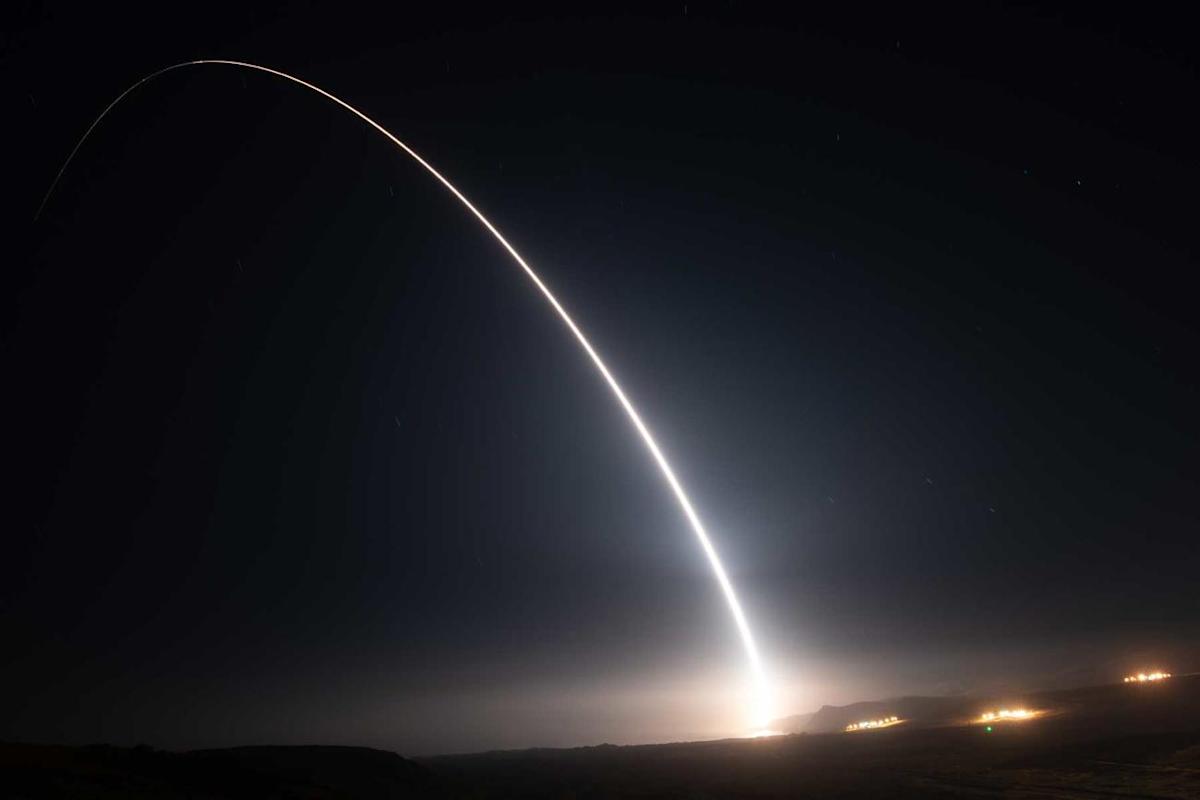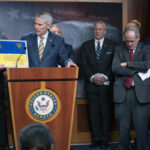
The Pentagon has scrubbed a scheduled test launch this week of a Minuteman III intercontinental ballistic missile to show Vladimir Putin that the U.S. is not interested in nuclear brinkmanship after the Russian president put his own arsenal on alert.
Defense Secretary Lloyd Austin ordered the delay Wednesday, just three days after Putin issued the alert and introduced the specter of nuclear war amid his internationally condemned invasion of Ukraine. U.S. tests of the long-range nuclear missiles are routine and typically scheduled years in advance.
“It’s not going to change our strategic deterrent posture one bit, and it is a wise and prudent decision by the secretary to send a strong, clear, unambiguous message to Mr. Putin how seriously we take our nuclear responsibilities at a particularly tense time,” Pentagon spokesman John Kirby said in a press briefing.
Read Next: Meet the Soldier Working to Unionize Texas Guardsmen Amid Troubled Border Mission
Over the past few days, the military had been analyzing the wording Putin used Sunday, when he put Russian deterrence forces on a “special mode of combat duty.” That phrase did not fit any terms in the country’s codified military doctrine, according to a senior defense official.
There was no immediate evidence that Russia had made changes to the posture of its nuclear weapons in the days after the order. Like the U.S., Putin’s government still maintains a massive stockpile of ICBMs built up by the Soviet Union during the Cold War, and it could give the launch order at any moment, annihilating foreign cities and populations.
Russia’s arsenal includes 6,257 nuclear warheads; the U.S. has 5,550, according to the Arms Control Association. The two nations own the vast majority of the world’s nuclear weapons.
The association called Putin’s move an escalation of the war and “extremely irresponsible.” Daryl Kimball, executive director of the association, said earlier this week that Russia could be capable of using smaller tactical nuclear weapons in a conflict that it saw as threatening its existence.
Sen. Jim Inhofe, R-Okla., ranking member of the Senate Armed Services Committee, said Wednesday afternoon that he was disappointed by Austin’s decision. Inhofe, who is set to retire, had called for a stronger U.S. nuclear deterrent following Putin’s order.
The Minuteman III “test is critical to ensure our nuke deterrent stays effective. Deterrence means projecting strength and resolve — not sacrificing readiness for hollow gestures,” Inhofe wrote in a tweet.
— Travis Tritten can be reached at travis.tritten@military.com. Follow him on Twitter @Travis_Tritten.




